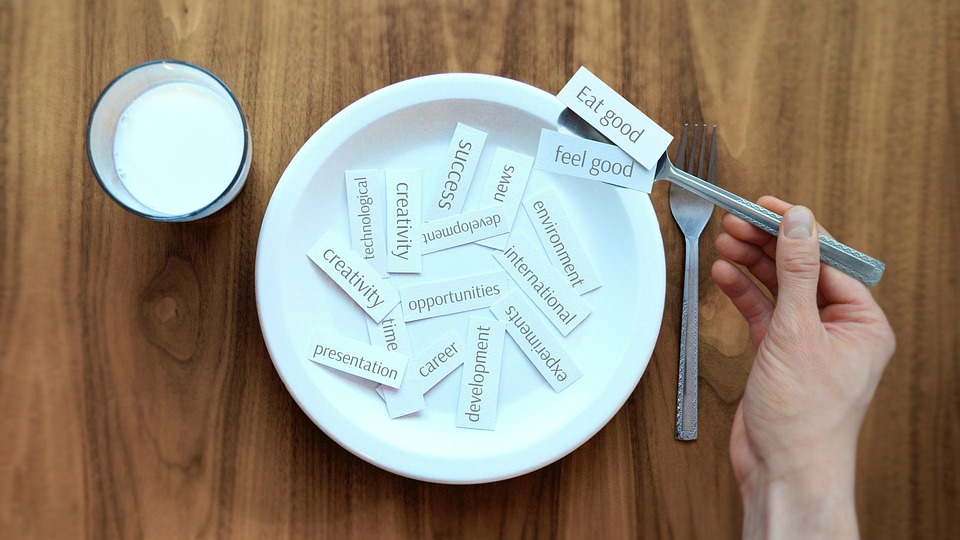Brain boosting foods are the everyday ingredients that sharpen your focus, calm the fog, and give your brain the steady energy it needs. They’re not magic; they’re science-backed choices you can make at breakfast, lunch, or a snack break that change the way you think and feel. This matters because your attention is finite, and your life asks a lot of it. Feed your brain with intention and watch it pay you back.
Contents
- Brain Boosting Foods To Start Your Day
- 1. Fatty Fish — The Omega-3 Powerhouse
- 2. Blueberries — Tiny Antioxidant Dynamos
- 3. Dark Chocolate — Focus With Flair
- 4. Walnuts — Brain-Shaped, Brain-Smart
- 5. Leafy Greens — The Daily Cognitive Insurance
- 6. Eggs — Simple, Versatile, Focus-Friendly
- 7. Coffee — The Classic Concentration Tool
- Bottom Line
Brain Boosting Foods To Start Your Day
Choose one powerful bite before you work. A focused morning sets the tone for the whole day. Swap a sugar crash for a slow, bright lift by picking foods that balance blood sugar, feed neurons, and soothe inflammation. That’s the practical promise of brain boosting foods: better thinking without gimmicks.
Why Food Changes Your Focus
Your brain is a greedy organ. It burns a lot of energy and relies on specific nutrients to keep neurons firing crisply. When you give it the right fats, antioxidants, and vitamins, your memory sharpens and distractions fade. Clinical studies link dietary patterns to improved cognition and attention, especially diets rich in nutrient-dense plants and healthy fats, so your choices really matter.
1. Fatty Fish — The Omega-3 Powerhouse
Eat salmon, mackerel, or sardines because they pack DHA, the structural fat of brain cells. DHA supports neuron membranes and communication, which translates to clearer thinking and steadier focus. Pop a fillet on the grill twice a week and you’re supporting long-term attention and mood.
Researchers link omega-3 intake to better cognitive function, and many neurologists recommend it as part of a brain-friendly diet. If you don’t like fish, a high-quality supplement or chia and flax seeds are decent stand-ins, though they convert less efficiently to DHA.
2. Blueberries — Tiny Antioxidant Dynamos
Blueberries earn their fame for a reason. They’re rich in anthocyanins, plant pigments that cross the blood-brain barrier and reduce oxidative stress. That means less neuronal wear-and-tear and sharper short-term recall.
Clinical trials show regular blueberry intake can improve memory performance and delay cognitive decline. Toss them into yogurt, oatmeal, or a smoothie for a delicious focus boost that’s effortless and portable.
3. Dark Chocolate — Focus With Flair
Yes, chocolate can be smart eating. Choose dark chocolate—70% cacao or higher—to get flavanols that increase blood flow to the brain and enhance attention. A small square before a demanding task can sharpen alertness and reaction time.
Dark chocolate also contains a bit of caffeine and theobromine for a gentle lift, plus mood-friendly compounds that make work feel less grind and more groove. Don’t overdo it—portion control is key.
4. Walnuts — Brain-Shaped, Brain-Smart
Walnuts look like tiny brains for a reason. They deliver omega-3s, antioxidants, and polyphenols that support synaptic health. A handful a day is a crunchy strategy to slow cognitive aging and sustain focus through long afternoons.
Nutrition researchers have found associations between regular nut consumption and improved cognitive performance. Keep a jar on your desk so you snack smart when you need a mental reset.
5. Leafy Greens — The Daily Cognitive Insurance
Spinach, kale, and collards are full of folate, vitamin K, and lutein—nutrients tied to slower cognitive decline and better executive function. These are the foods that keep your attention steady across decades, not just hours.
Add a salad at lunch, fold greens into omelets, or blend them into smoothies. Small, habitual servings of leafy greens add up to big cognitive returns.
6. Eggs — Simple, Versatile, Focus-Friendly
Eggs deliver choline, a building block for acetylcholine, a neurotransmitter that plays a role in attention and memory. They’re also high in protein, which steadies blood sugar and prevents the mid-morning slump.
A poached egg over greens or an omelet with mushrooms is a quick, satisfying way to fuel your brain at the start of a demanding day.
7. Coffee — The Classic Concentration Tool
For many, coffee is the ritual that signals “time to pay attention.” Caffeine boosts alertness by blocking adenosine, and the ritual itself can prime your focus. Black or with minimal milk and no sugar, coffee sharpens concentration without the crash.
Research shows moderate coffee consumption is associated with improved cognitive performance, though individual sensitivity varies. If caffeine makes you jittery, green tea offers a gentler lift plus L-theanine, which smooths attention.
How To Stack These Brain Boosting Foods
Smart food stacking turns good choices into focused days. Try these practical combos:
- Breakfast: spinach omelet with a side of berries and a small square of dark chocolate.
- Midday: grilled salmon salad with mixed greens and walnuts.
- Snack: Greek yogurt with blueberries or a handful of walnuts and a coffee.
These pairings balance fats, protein, and antioxidants to stabilize energy and keep your neurons firing.
When To Be Cautious
Even healthy foods can backfire when overdone. Too much caffeine disrupts sleep and ruins focus the next day. Excess calories from nuts or chocolate will weigh you down physically and mentally. Also, not all supplements are created equal—talk to your doctor before starting high-dose fish oil or other concentrates, especially if you’re on medication or pregnant.
Strong food choices must live alongside sleep, movement, and stress management. Food helps, but it isn’t a stand-alone cure.
Practical Tips For Busy Lives
- Prep once, eat smart all week: roast salmon, chop veggies, and portion nuts to grab on the go.
- Keep a focus kit: a jar of walnuts, a small pack of dark chocolate, and ready-to-eat berries.
- Pair food with rituals: brew coffee, sit down, and write a two-item priority list. The ritual sharpens attention.
These are small habits that accumulate into a calmer, keener brain.
What The Experts Say
Dietitians and neurologists often point to the Mediterranean-style pattern—rich in fish, leafy greens, nuts, and berries—as the best single change for brain health. Large cohort studies and randomized trials underline that certain nutrients and foods are reproducible levers for attention and memory. You don’t need perfection; you need consistency.
If you want to dig deeper, look at research from leading medical centers and universities showing links between diet and cognition, and consider a consultation with a registered dietitian for personalized guidance.
Bottom Line
Bold choices matter. Brain boosting foods like fatty fish, blueberries, dark chocolate, walnuts, leafy greens, eggs, and coffee give you tangible shifts in clarity and stamina. They tune your attention in practical ways—steady energy, less inflammation, better neuronal communication. Start with one swap this week: add a handful of walnuts to your lunch or choose a spinach omelet for breakfast. Your focus will thank you.
Be kind to your body. Eat with intention, move some, sleep enough, and build tiny rituals around your food. That’s how real brain change happens—slowly, confidently, and deliciously.
Stay focused and take one nourishing bite at a time.
References
The National Institutes of Health published an overview of omega-3 fatty acids and cognitive health that explains the role of DHA in brain function (http://www.ncbi.nlm.nih.gov/pmc/articles/PMC3262608/).
Harvard T.H. Chan School of Public Health summarizes research on berries and cognitive performance, including links between anthocyanins and memory benefits (http://www.hsph.harvard.edu/nutritionsource/food-features/berries/).
A review in the journal Nutrients discusses nuts, cognitive health, and clinical evidence for walnuts improving brain function (http://www.mdpi.com/2072-6643/11/9/2064).
The Alzheimer’s Association provides resources and summaries of studies showing how Mediterranean-style diets support brain health (http://www.alz.org/research).
A clinical review from the American Journal of Clinical Nutrition examines caffeine, attention, and cognitive effects of coffee consumption (http://ajcn.nutrition.org/content/early/2019/08/07/ajcn.nutr.119.110674).








